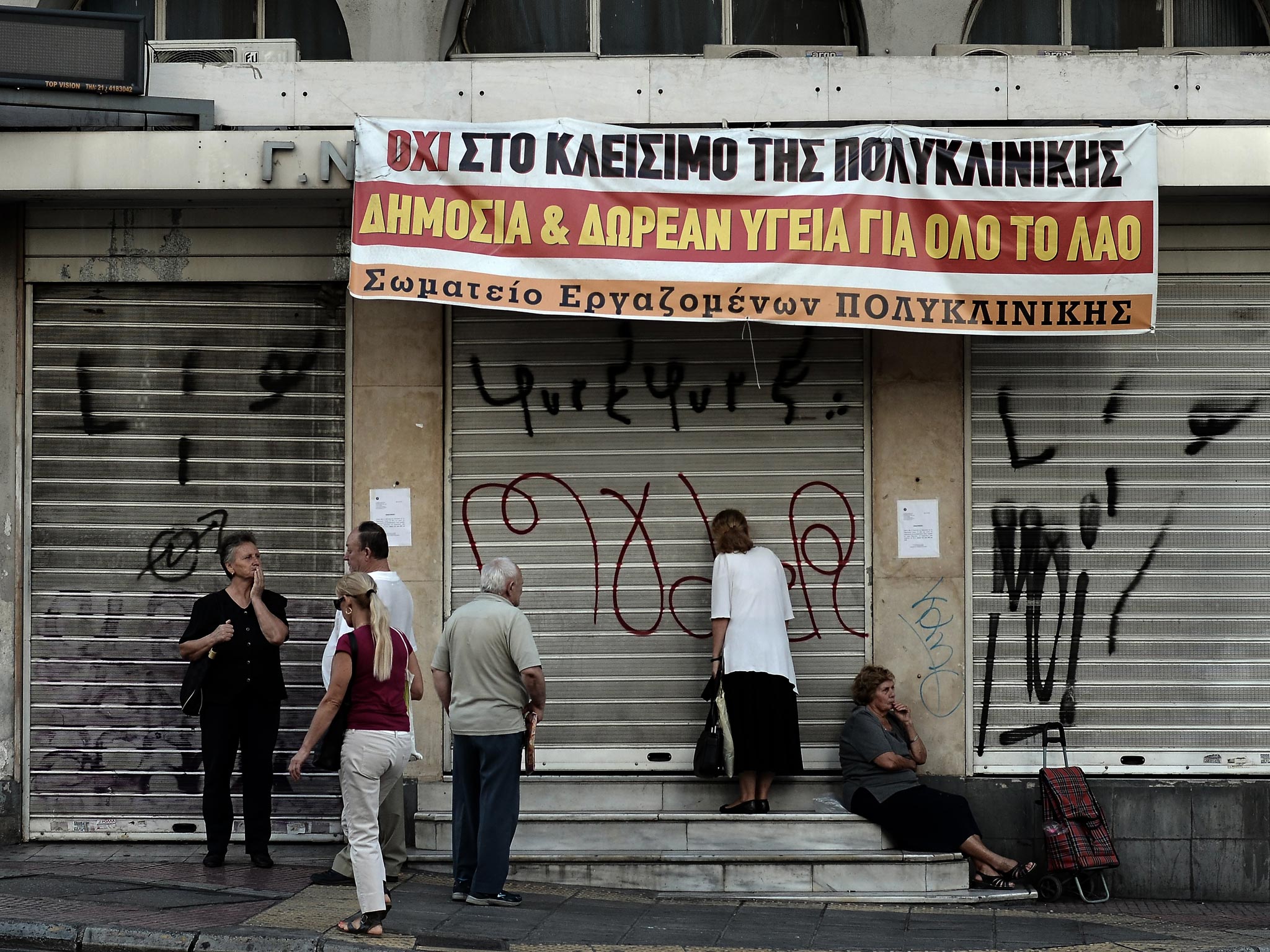Greek hospitals cannot afford painkillers, scissors or sheets as budget cuts bite
The news comes as Greece tries to avoid a default in early June

Your support helps us to tell the story
From reproductive rights to climate change to Big Tech, The Independent is on the ground when the story is developing. Whether it's investigating the financials of Elon Musk's pro-Trump PAC or producing our latest documentary, 'The A Word', which shines a light on the American women fighting for reproductive rights, we know how important it is to parse out the facts from the messaging.
At such a critical moment in US history, we need reporters on the ground. Your donation allows us to keep sending journalists to speak to both sides of the story.
The Independent is trusted by Americans across the entire political spectrum. And unlike many other quality news outlets, we choose not to lock Americans out of our reporting and analysis with paywalls. We believe quality journalism should be available to everyone, paid for by those who can afford it.
Your support makes all the difference.Greek hospitals have run out of supplies such as painkillers, scissors and sheets as swingeing budget cuts have left the health service unable to provide even basic provisions for operations and medical procedures.
Huge cuts to the healthcare budget, amid the economic turmoil which made millions unemployed, have left than 2.5m Greeks uninsured, up from 500,000 in 2008, the Times reported.
On coming to power the Syriza government scrapped the €5 fee for attending state hospitals and pledged to hire 4,500 more health workers, despite the need for austerity and criticism from creditors.
Notwithstanding the government’s promises, healthcare spending has fallen by 25 per cent since 2009, creating shortages of the most basic surgical equipment and leaving too little money to pay nurses' salaries.
Reports have surfaced of patients being turned away from hospital because there was no meter to measure their high blood pressure, while others have had to do without painkillers during medical procedures. One patient was even asked to bring their own sheets to hospital.
A trainee surgeon at KAT, a respected state hospital in Athens, said the situation was at “breaking point”.
“There is no money to repair medical equipment, no money for ambulances to use for petrol, no money to hire nurses and no money to buy modern surgical supplies,” he told the Times.
The news comes as the Greek finance minister, Yanis Varoufakis, warned the country would run out of money in a matter of weeks.
By 5 June Athens must repay the IMF €300m, but should Eurozone creditors not agree to release a €7.2bn loan it is likely Greece will default. A further €820m is due just days later.
It is unclear what this would mean for Greece’s position in the euro club. Christine Lagarde, head of the IMF, said “some progress” was being made in negotiations between the fund and Athens, while Varoufakis said leaving the single currency was “not in our thoughts”.
Join our commenting forum
Join thought-provoking conversations, follow other Independent readers and see their replies
Comments